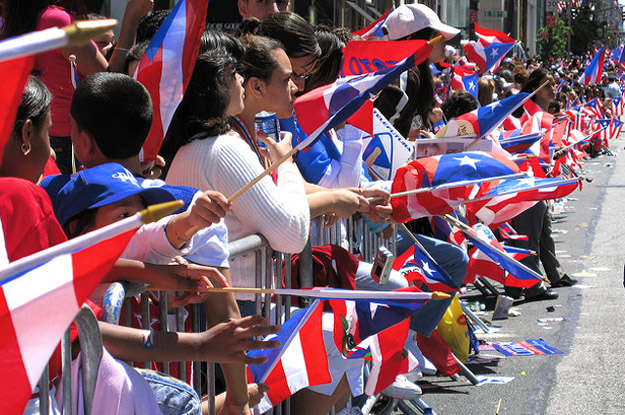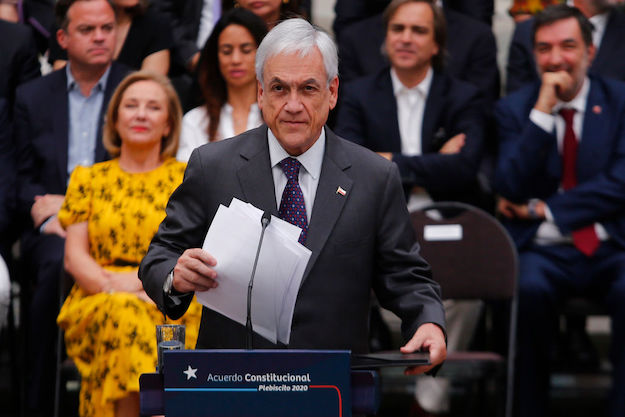Feeling caught between two countries is always complicated. I think the experience was best summed up in the movie Selena when the title character’s father laments: “We have to be more Mexican than the Mexicans and more American than the Americans, both at the same time! It’s exhausting!”
For those of us who grew up in the Puerto Rican diaspora, the challenge can be overwhelming. We felt like we needed to be as Puerto Rican as possible at home (in preparation for some not-so-distant day when our families inevitably returned to the island, or so we thought), and as “American” as possible in our daily lives (as a matter of survival until that day arrived). As a result, we’ve often been seen as neither one thing nor the other. And while our hearts often break for a place we’ve never officially called home, in the eyes of many Puerto Ricans we’re disqualified from opining on politics on the island. Just ask any mainland-born Boricua who has dared to state an opinion on the “status question” and been met with an eye roll and a “¿Y tú qué sabes?”
The trouble with this, though, is that the U.S. Congress plays an outsize role in Puerto Rico’s problems. Excluding the diaspora from Puerto Rican political issues leaves out the very people who are, in some ways, best-positioned to push for change.
Consider, for example, the island’s current economic crisis. Mismanagement and reckless borrowing by a run of Puerto Rican administrations have certainly made things worse. But several factors contributing to the crisis began with, and can be solved by, the U.S. Congress. Up until a redrafting of bankruptcy law in 1984, Puerto Rican municipalities and public corporations were able to file for Chapter 9 bankruptcy protection, just like every state in the union. Congress currently has the power to reinstate that privilege with bills in the House and Senate, but instead has chosen to let them languish. Even if they acted immediately without precondition (which isn’t likely), restructuring Puerto Rican debt won’t be enough to correct the structural inefficiencies on the island that helped lead to the crisis.
Again, many of these inefficiencies are a result of local law and policy. But there is one federal law that has added to the financial squeeze. Puerto Rico is subject to the Jones Act, a maritime law that requires that all goods arrive on ships owned by U.S. citizens, built and registered in the U.S., with U.S. citizens comprising all licensed officers and at least 75 percent of the ship’s unlicensed crew. Congress can and should exempt Puerto Rico from this law, just as it has done for the U.S. Virgin Islands. Not only would this reduce the artificially high cost of consumer goods on the island – import costs in Puerto Rico are at least twice as high as its neighbors in the Caribbean – it would help the beleaguered state power utility PREPA, a symbol of the debt crisis, switch from foreign oil to more affordable energy, including American natural gas.
There were five Congressional hearings on Puerto Rico in 2015, none of which led to a single concrete action. Despite over a decade of recession, the island’s first default in August, and calls from the U.S. Treasury Department, the first federal action we may see on the economic crisis won’t come until the end of this month, at the earliest.
The Puerto Rican diaspora in the mainland U.S. is 5 million people strong, making us the second-largest Latino group in the country. We’re moving to Central Florida by the thousands, changing the demographic landscape and upending the traditional political calculus for winning the Latino vote in that state. But despite decades of relocation that has only increased in light of the economic crisis on the island, it seems that we have yet to find our voice and flex our political muscle.
Puerto Rico must become more than just a campaign stop on the way to the presidential primaries, quickly forgotten when it’s no longer convenient. It’s time for Congress to act on Puerto Rico. And if they won’t listen to Puerto Rico’s governor, non-voting representative, or the 3.5 million American citizens on the island, let them listen to the 5 million of us here. We must ensure that our representatives in Congress and presidential candidates acknowledge the crisis in Puerto Rico and take concrete action in 2016.
We may not agree on whether we want independence or statehood for Puerto Rico or who we want as our next president, but we do agree that what’s happening in Puerto Rico is completely unacceptable. It’s time to use our voice and our vote for the island that we love.
—
García is production and social media editor for AQ.







